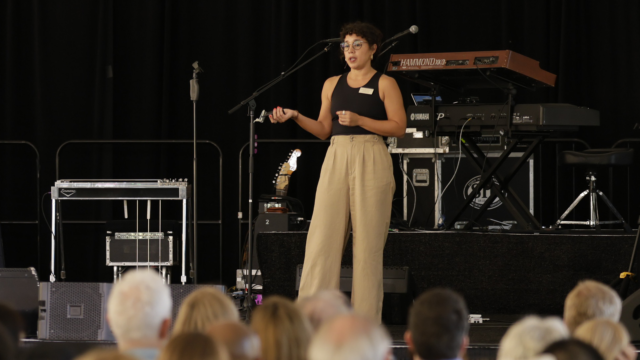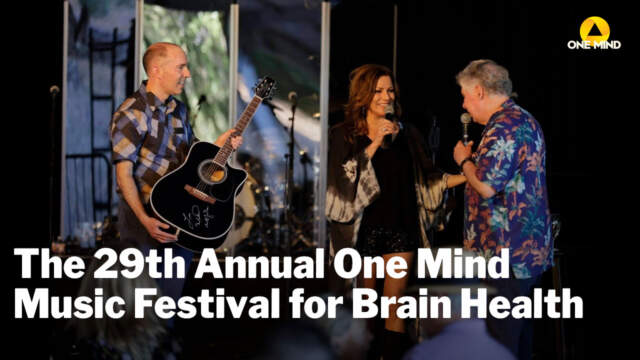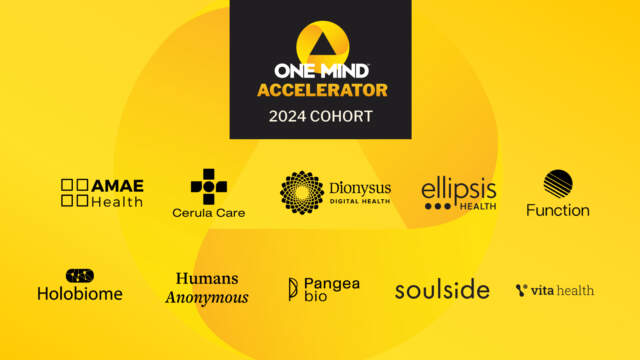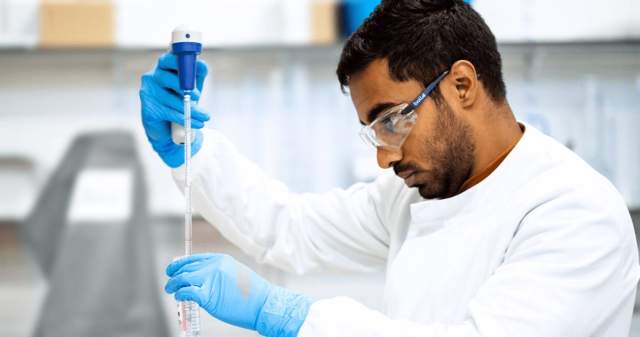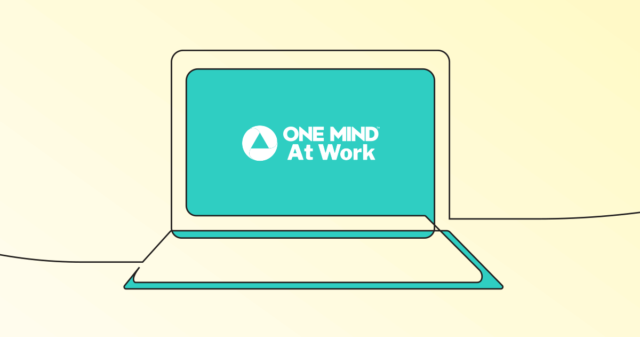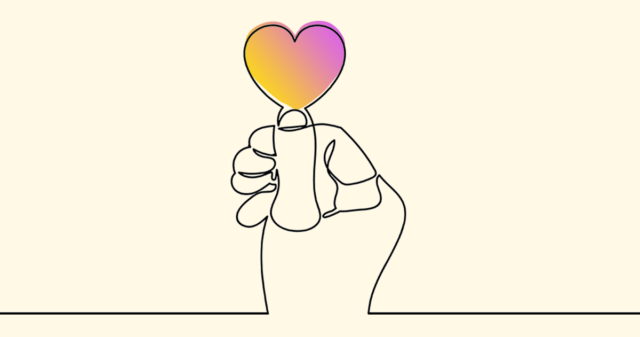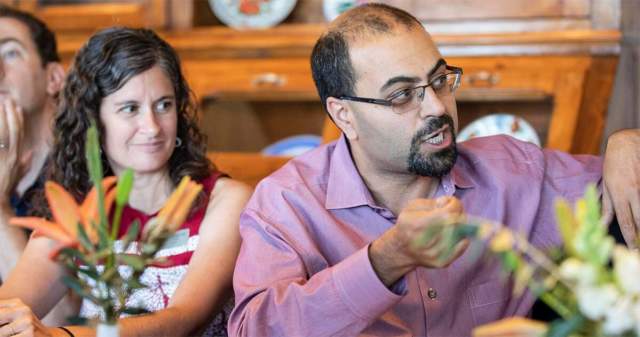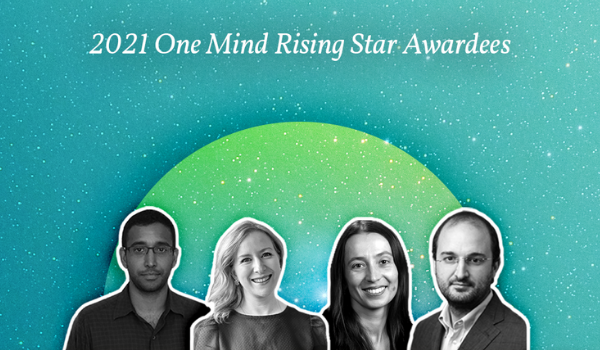One Mind Announces the 2021 Rising Star Awards with Expanded Leadership Development Support
Annual Music Festival for Brain Health is sold out, but public can access free virtual scientific symposium
August 24, 2021, Rutherford, CA – One Mind™, in collaboration with Janssen Research & Development, Donna Friedman and Robina Riccitiello, has announced four Rising Star Research Awards for 2021. The One Mind Rising Star Research Awards are a vital catalyst to accelerate neuropsychiatric science by identifying and funding the most promising emerging leaders whose pivotal, innovative research aims to improve lives worldwide. Starting this round, in addition to providing each awardee a $300,000 grant, One Mind will offer awardees expanded opportunities to advance their science and leadership. In addition, One Mind, in collaboration with Inscopix, has announced a supplemental technology grant in support of one Rising Star Research Award.
One Mind’s Scientific Advisory Board has selected: Devanand Manoli, MD, PhD of University of California, San Francisco to receive the 2021 One Mind Janssen Rising Star Translational Research Award in Honor of Jeffrey S. Nye, M.D., Ph.D.; Sarah Stern, PhD of Max Planck Florida Institute for Neuroscience to receive the 2021 One Mind Donna Friedman Rising Star Eating Disorders Research Award; Yevgenia Kozorovitskiy, PhD of Northwestern University to receive the 2021 One Mind Nick LeDeit Rising Star Research Award; and Renato Polimanti, PhD, MSc, Yale School of Medicine to receive the One Mind Rising Star Computational Psychiatry Research Award. In addition to his Rising Star Award, Dr. Manoli has also won the 2021 One Mind / Inscopix Technology Supplement Grant.
Each Rising Star Award recipient will present their research at the Scientific Symposium portion of the 27th Music Festival for Brain Health at Staglin Family Vineyard in Rutherford, California on Saturday, September 11, 2021. The festival is sold out, but those interested in attending the virtual scientific symposium can register in advance at www.music-festival.org by clicking the yellow register link. Registered guests will be provided with a link to the webcast in the days before its September 11th airing. There is no cost to access the virtual symposium, but donations are greatly appreciated.
Difficulties forming social bonds impede life development for many people who experience autism spectrum disorders, schizophrenia, and some mood and personality disorders. To better understand the brain mechanisms and genetic factors underlying social attachment, Dr. Manoli uses prairie voles (a monogamous rodent species) to identify systems and behaviors required for the development of a “pair bond,” or a male-female partnership. Dr. Manoli aims to demonstrate the importance of social communication, show how sensory pathways may be modulated to facilitate attachment, and inform interventions to improve social abilities.
Eating disorders involve learned behaviors, with people’s symptoms worsened by associative cues. Dr. Stern hypothesizes that a specific brain circuit (connecting the insular cortex and the central amygdala) controls feeding based on learned information. This circuit may contribute to the development of maladaptive feeding behaviors, including those relevant for eating disorders. Using chemogenetics, transcriptomics, and in vivo calcium imaging techniques, Dr. Stern will investigate this brain circuit and test the hypothesis with behavioral tasks that measure anorexia-like behaviors in mice.
For many people, trauma and prolonged stress can impact mental, emotional, and physical health by changing patterns of brain activity and even people’s brain structures. Dr. Kozorovitskiy believes that dopamine signaling is a key biomarker for predicting individuals who heal after trauma (resilient) versus those that don’t (susceptible). Using a combination of optical and electrophysiological tools, Dr. Kozorovitskiy plans to interrogate the role of dopamine in structural plasticity changes following stress and trauma, and how exposure to rapidly acting antidepressant drugs, like ketamine, may help recover these changes back to baseline.
The complexity of internalizing disorders such as post-traumatic stress, depression, and anxiety limits the translation of genetic risk factors into predictive tools doctors can use to identify and treat at-risk individuals. Dr. Polimanti plans to develop novel analytic strategies based on integration of different perspectives including disease-specific modeling, the integration of genetic information with other molecular data, and the assessment of the interaction with environmental risk factors. By developing reliable instruments, Dr. Polimanti’s work can help healthcare professionals implement preventive strategies and early intervention to help people thrive.
The 2021 One Mind Rising Star Award winners were selected with the assistance and recommendations of the One Mind Scientific Advisory Board, which includes ten of the leading brain scientists in the world, noted for their pioneering research in their respective fields. Each Rising Star recipient will receive $300,000 over a three-year period to fund their studies, plus opportunities for leadership development, networking, and where appropriate, scaled implementation of their discoveries.
“We are proud that One Mind is able to support these pioneering Rising Stars’ work over the next three years,” states One Mind President Brandon Staglin. “We extend our profound thanks to our donors, especially Janssen Research & Development, Donna Friedman and Robina Riccitiello, and Inscopix, for enabling us to present these awards. We’re excited to help these four young scientists discover answers on the path to better treatments, and to assist those afflicted to live their fullest lives.”
###
300 DPI digital images available upon request
About One Mind™
One Mind is a leading mental health non-profit that heals lives through brain research, working from science to services to society. By bringing together the best minds in brain science and advocacy around our collective vision of “Accelerating Brain Health for All”, One Mind is advancing a three-pronged program strategy of accelerating discoveries, scaling implementation and transforming societal culture. Together, we are creating a world where all individuals facing brain health challenges can build healthy, productive lives. www.onemind.org
About One Mind™ Rising Star Awards
One Mind launched the Rising Star Awards in 2005 under the fundamental principle that cutting edge, high-risk research would allow us to find the breakthroughs to accelerate cures for the neuropsychiatric illnesses that affect 1 in 4 people worldwide. Knowing that 90% of these conditions are treatable, we created a highly impactful grant to enable outside-the-box research that might not otherwise be federally funded. Each One Mind Rising Star Award winner receives $300,000 over a three-year period to fund their studies, catalyzing innovation, encouraging collaboration and data sharing. Since 2005, One Mind has granted 36 awards to some of the best and brightest early career brain scientists. Since receiving their awards, these researchers have gone on to make a significant impact, both in their studies and in the brain health community. One such awardee is 2010 Rising Star Award winner, Dr. Joshua Gordon, who now serves as the Director of the National Institute of Mental Health.
Media Contacts:
Fuller & Sander Communications
Tom Fuller/Monty Sander
(707) 253-0868 or (707) 253-8503
tom@fullerandsander.com or monty@fullerandsander.com

